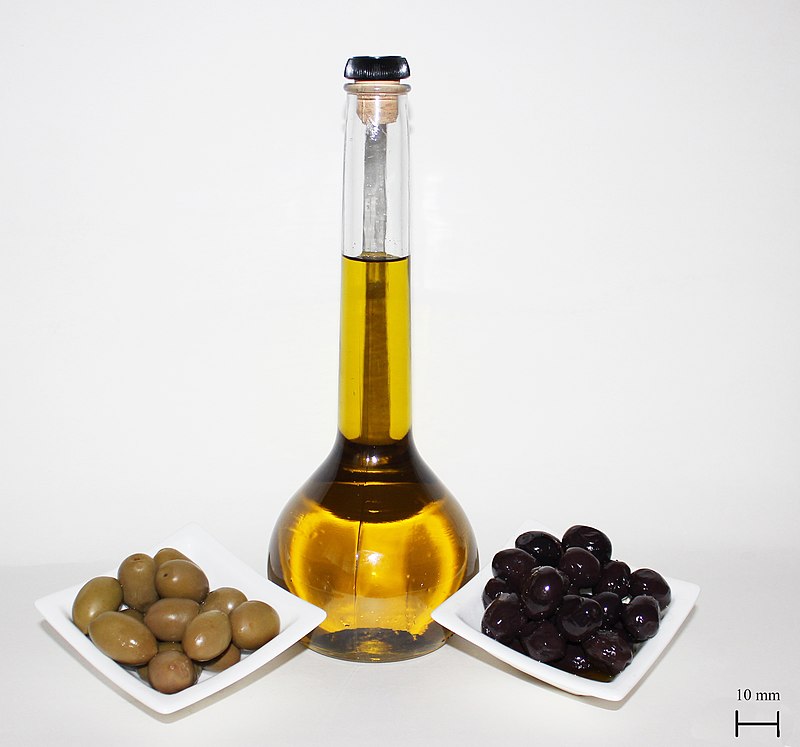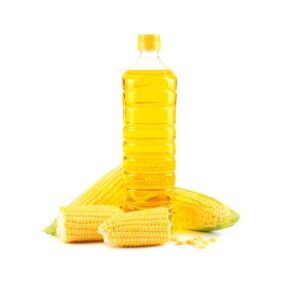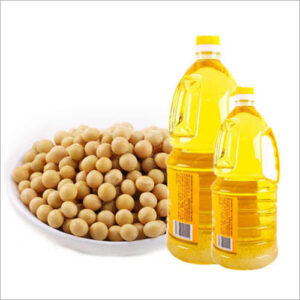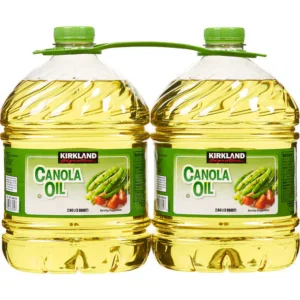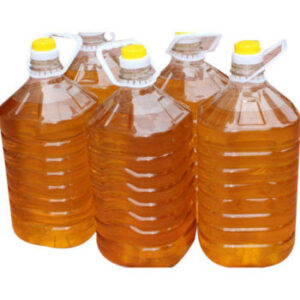Olive oil is a liquid fat obtained by pressing whole olives, the fruit of Olea europaea, a traditional tree crop of the Mediterranean Basin, and extracting the oil. It is commonly used in cooking, for frying foods or as a salad dressing. It can also be found in some cosmetics, pharmaceuticals, soaps, and fuels for traditional oil lamps. It also has additional uses in some religions. The olive is one of three core food plants in Mediterranean cuisine, together with wheat and grapes. Olive trees have been grown around the Mediterranean since the 8th millennium BC.
Spain is the world’s largest producer, manufacturing almost half of the world’s olive_oil. Other large producers are Italy, Greece, Tunisia, Turkey and Morocco.
The composition of olive oil varies with the cultivar, altitude, time of harvest, and extraction process. It consists mainly of oleic acid (up to 83%), with smaller amounts of other fatty acids including linoleic acid (up to 21%) and palmitic acid (up to 20%). Extra virgin olive oil is required to have no more than 0.8% free acidity and is considered to have favorable flavor characteristics.
Uses of Olive Oil
Culinary use
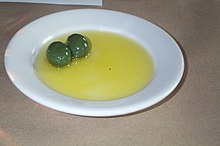
Olive oil is an important cooking oil in countries surrounding the Mediterranean, and it forms one of the three staple food plants of Mediterranean cuisine, the other two being wheat (as in pasta, bread, and couscous) and the grape, used as a dessert fruit and for wine.
Extra virgin olive oil is mostly used as a salad dressing and as an ingredient in salad dressings. It is also used with foods to be eaten cold. If uncompromised by heat, the flavor is stronger. It also can be used for sautéing.
When extra virgin olive oil is heated above 210–216 °C (410–421 °F), depending on its free fatty acid content, the unrefined particles within the oil are burned. This leads to deteriorated taste. Refined olive oils are suited for deep frying because of the higher smoke point and milder flavour. Extra virgin oils have a smoke point around 180–215 °C (356–419 °F), with higher-quality oils having a higher smoke point, whereas refined light olive oil has a smoke point up to 230 °C (446 °F). It is a “popular myth” that high-quality extra virgin olive oil is a poor choice for cooking as its smoke point is above the temperatures required for most cooking (outside of high-temperature applications like deep frying, shallow frying, and searing), and has greater resistance to oxidation than most other cooking oils, as a result of its antioxidant and mono-unsaturated fat content.
Religious use of Olive Oil
Christianity: The Roman Catholic, Orthodox and Anglican churches use olive oil for the Oil of Catechumens (used to bless and strengthen those preparing for Baptism) and Oil of the Sick (used to confer the Sacrament of Anointing of the Sick or Unction). Olive oil mixed with a perfuming agent such as balsam is consecrated by bishops as Sacred Chrism, which is used to confer the sacrament of Confirmation (as a symbol of the strengthening of the Holy Spirit), in the rites of Baptism and the ordination of priests and bishops, in the consecration of altars and churches, and, traditionally, in the anointing of monarchs at their coronation.
Eastern Orthodox Christians still use oil lamps in their churches, home prayer corners and in the cemeteries. A vigil lamp consists of a votive glass containing a half-inch of water and filled the rest with olive oil. The glass has a metal holder that hangs from a bracket on the wall or sits on a table. A cork float with a lit wick floats on the oil. To douse the flame, the float is carefully pressed down into the oil. Makeshift oil lamps can easily be made by soaking a ball of cotton in olive_oil and forming it into a peak. The peak is lit and then burns until all the oil is consumed, whereupon the rest of the cotton burns out. Olive oil is a usual offering to churches and cemeteries.
The Church of Jesus Christ of Latter-day Saints uses virgin olive oil that has been blessed by the priesthood. This consecrated oil is used for anointing the sick.
Iglesia ni Cristo uses olive oil to anoint the sick (in Filipino: Pagpapahid ng Langis), it is blessed by minister or deacon by prayer before anointing to the sick. After anointing, the Elder prays for Thanksgiving.
Judaism: In Jewish observance, olive_oil was the only fuel allowed to be used in the seven-branched menorah in the Mishkan service during the Exodus of the Tribes of Israel from Egypt, and later in the permanent Temple in Jerusalem. It was obtained by using only the first drop from a squeezed olive and was consecrated for use only in the Temple by the priests and stored in special containers. In modern times, although candles can be used to light the menorah at Hanukkah, oil containers are preferred, to imitate the original menorah.
Mostly, crude pomace oil is used as fuel for this purpose. This type of oil is not suitable for direct human consumption but has several industrial uses, including the production of candles. Candles made from crude pomace oil are not only eco-friendly, but they also produce a bright and steady flame, making them ideal for lighting purposes.
In Ancient Israel, olive oil was also used to prepare the holy anointing oil used for priests, kings, prophets, and others.
Other uses of Olive Oil: Olive oil is also a natural and safe lubricant, and can be used to lubricate kitchen machinery (grinders, blenders, cookware, etc.). It can also be used for illumination (oil lamps) or as the base for soaps and detergents. Some cosmetics also use olive oil as their base, and it can be used as a substitute for machine oil. Olive_oil has also been used as both solvent and ligand in the synthesis of cadmium selenide quantum dots.



